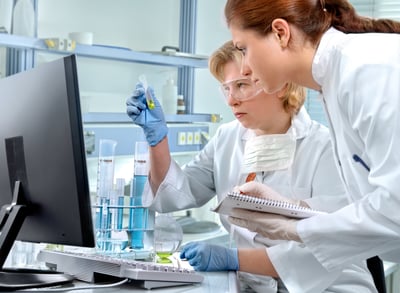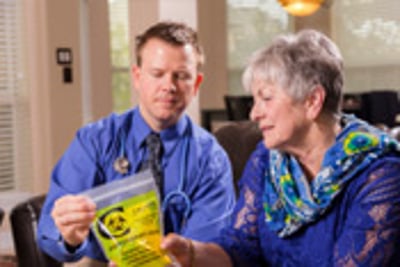FORCE's eXamining the Relevance of Articles for You (XRAY) program looks behind the headlines of cancer news to help you understand what the research means for you.
XRAY is a reliable source of hereditary cancer research-related news and information.
Learn more about the XRAY program
Keyword: PALB2
Relevance: Medium


Strength of Science: Medium-High


Research Timeline: Post Approval


Study : What are the genetics underlying 12 different cancer types?
Relevance: Medium


Strength of Science: Medium-High


Research Timeline: Post Approval


Most relevant for: People diagnosed with cancer
As gene sequencing has become more affordable, researchers and health care providers are now looking for mutations in many genes beyond BRCA1, BRCA2 and others that are associated with known hereditary cancer syndromes. By sequencing thousands of genes rather than just one or two, researchers can better understand which inherited mutations affect cancer risk. In this study, researchers sequenced thousands of genes in patients with one of 12 cancers, including breast, and catalogued which gene mutations are most commonly found in each cancer. (03/01/16)
Read More
Relevance: Medium


Strength of Science: Medium


Research Timeline: Human Research


Study : Potential genetic basis for breast cancer survivors who develop therapy-related leukemia
Relevance: Medium


Strength of Science: Medium


Research Timeline: Human Research


Most relevant for: Breast cancer patients who have an inherited mutation and breast cancer patients who developed leukemia after treatment for breast cancer.
The population of breast cancer survivors in the United States is increasing. One rare but dangerous long-term effect of breast cancer treatment is an increased risk of leukemia, a type of bone marrow cancer. A recent study uncovered a potential genetic basis for this condition. (01/26/2015)
Read More
Relevance: Medium


Strength of Science: Medium-High


Research Timeline: Human Research


Study : How many children with cancer have mutations in genes that increase cancer risk?
Relevance: Medium


Strength of Science: Medium-High


Research Timeline: Human Research


Most relevant for: Survivors of childhood cancer and people with a family history of relatives diagnosed with childhood cancers
Many genes are associated with increased cancer risk in adults, but it is unclear how common these mutations are in children with cancer. This study found that about 9% of children with cancer carry mutations in a gene that is known to increase cancer risk. Over half of the mutations were in the TP53 gene, which is associated with increased cancer risk at a young age and increased risk of breast cancer in adults. (12/15/2015)
Read More